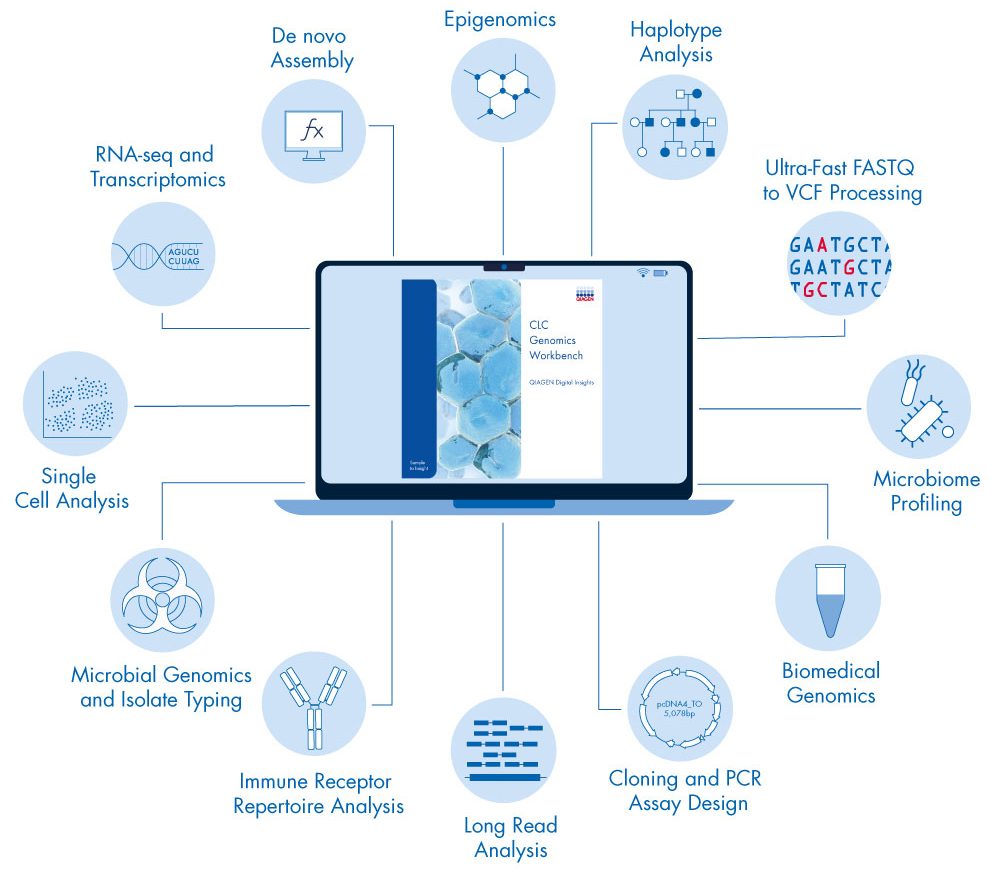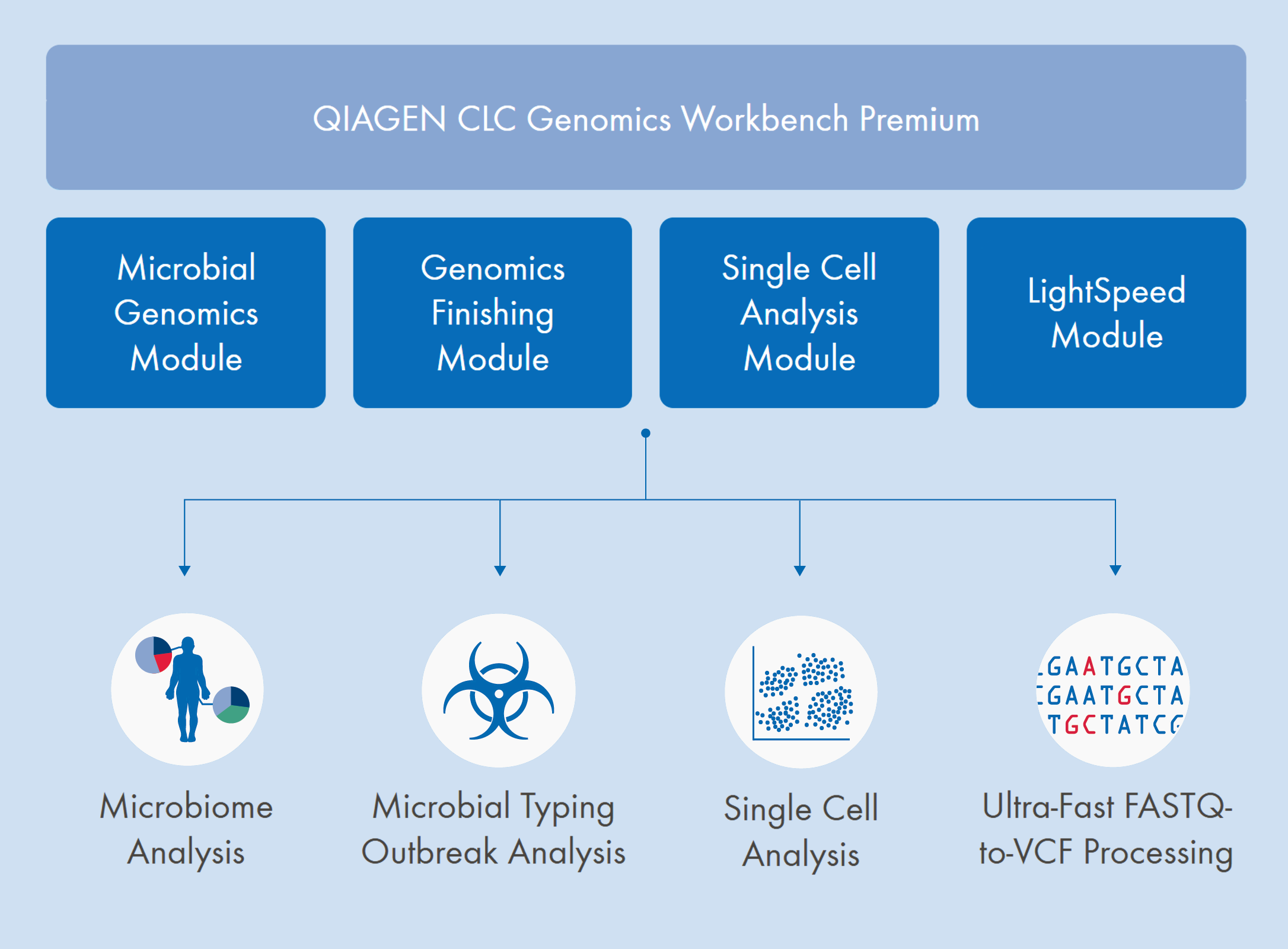

















Ever-growing sample volumes demand more efficient bioinformatics software.
Overcome your data analysis challenges with QIAGEN CLC Genomics Workbench Premium, the staple sequence analysis software for industry and academia.

You can depend on CLC Genomics Workbench Premium for your entire analysis journey, from raw sequencing files to publication-ready visuals. Access workflows for de novo assembly of whole genomes and transcriptomes, resequencing analysis, variant calling, RNA-seq, DNA methylation and more.
Intuitive interface:
Flexible workflows: Build and share your own customized analysis workflows for a wide range of NGS data
Plugins and modules: Expand functionality with prebuilt workflows and expert tools in plugins and modules
With CLC Genomics Workbench Premium sequence analysis software, you can install and use our popular microbial and metagenomics, genome finishing, single-cell analysis and LightSpeed data processing modules.
Additional functionalities, including whole genome alignment, biomedical genomics analysis and submission of analyses to a CLC Genomics Cloud setup, are available via other plugins and modules.

You can investigate anything from food contamination to antimicrobial resistance with our sequence analysis software.